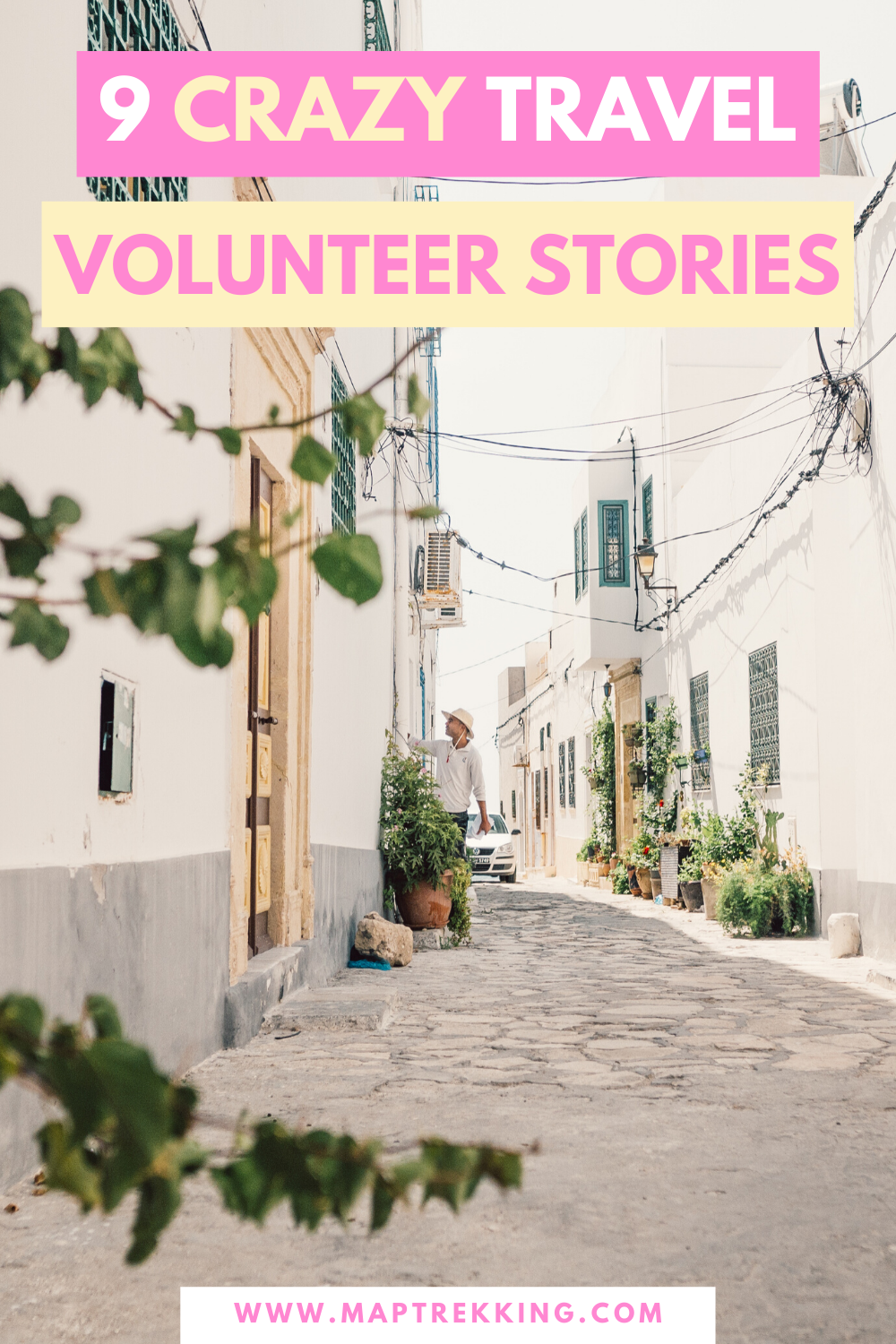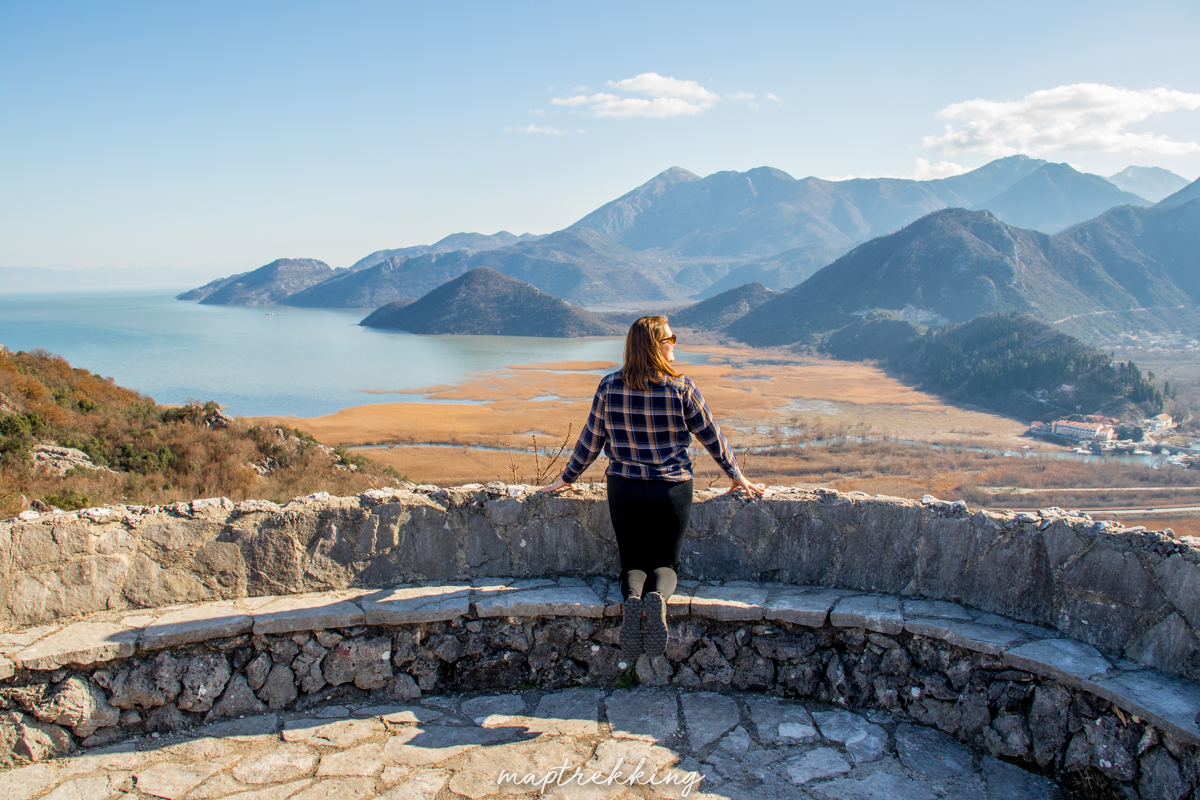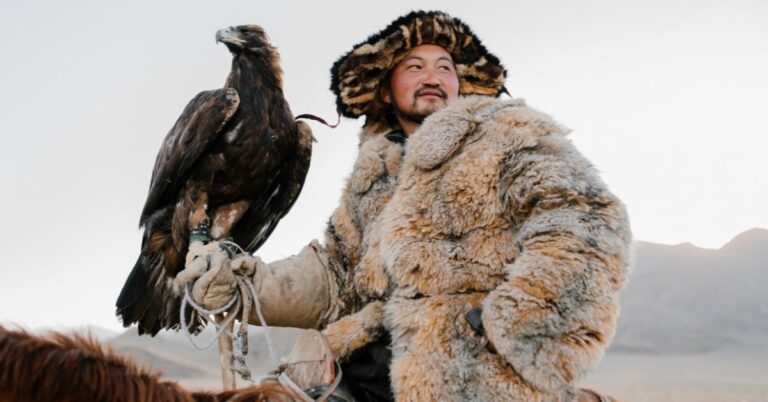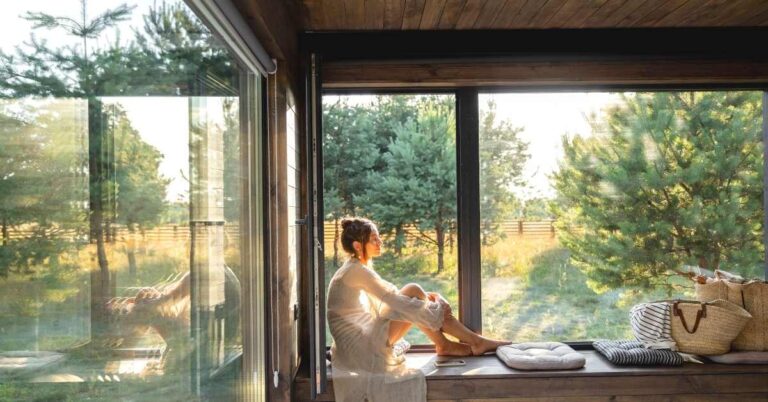If you’re wanting to read some crazy and fun travel volunteer experiences, here are 7 stories to enjoy. These adventurous tales are brought to you from travel bloggers all around the world.
Disclaimer: This site contains affiliate links that will cost you nothing extra but offer me a little commission for any purchases made. Thank you so much for your support.
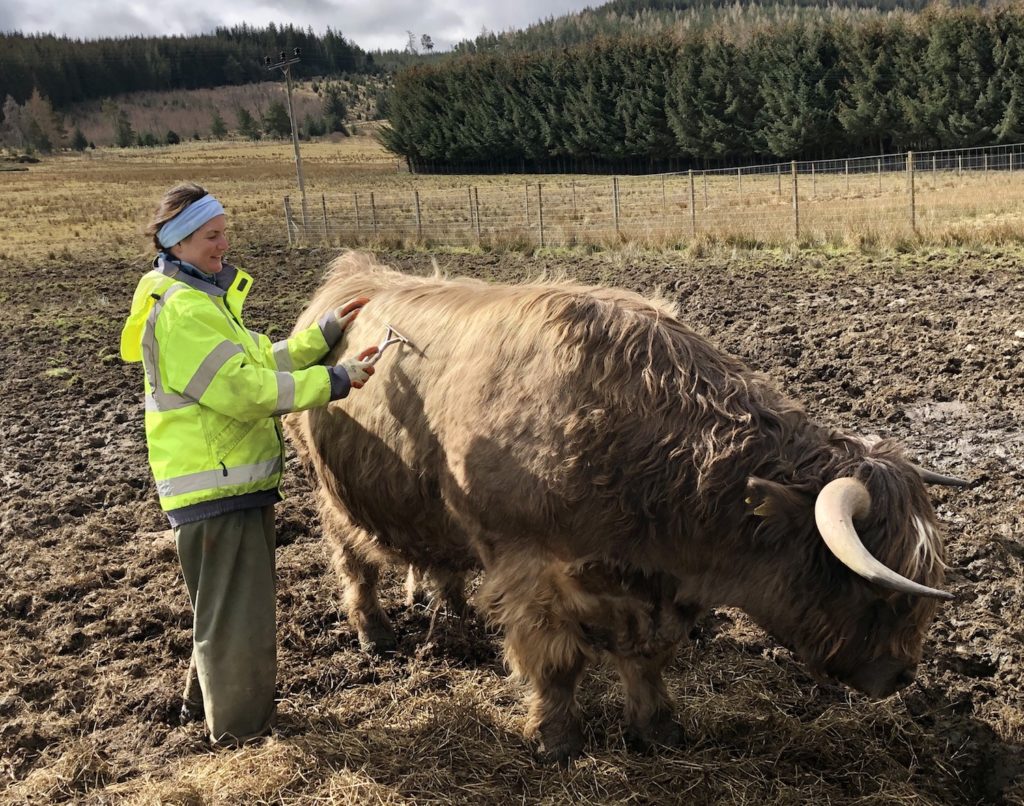
#1 Wwoofing At A Farm In Scotland
Ellie & Ravi from soultravelblog.com
As COVID-19 spread in February and March this year, we found our life and travel plans upside down.
A 6 month trip to India was set aside mid-way.
We had packed up our belongings and put it all into storage in Canada, where we had been living, and was traveling to my home country of the UK for a family wedding en route to India, where my partner is from.
Midway through our stay in the UK, it became clear that the world was closing its borders, India had decided no foreign citizens could enter, and our tickets were canceled.
With nowhere to stay in the UK and no-end to the emerging travel bans in sight, we were forced to get creative.
We’d been considering Wwoofing for some time – the idea of re-learning a more simple form of existence, mastering self-sufficiency and being embraced by more natural surroundings appealed to us.
Within a day, we had been accepted by a farm in the northern Scottish Highlands, on the edge of the Cairngorms National Park outside Aberdeen.
Wwoof stands for “Willing Workers on Organic Farms” and is a global charity, with operations in multiple countries including the UK, Canada, Australia and many more.
Wwoofing was founded as a way for city dwellers to get a taste of the outdoors and travel to help out on farms at weekends, getting away from the “big smoke”.
Today it has evolved and it’s popular with students, gap-year travelers, and young (at heart) travelers looking for ways to travel more slowly or affordably and experience more of a country’s culture.
At the ages of 34 and 37, we’re probably at the older end of the scale than most ‘Wwoofers’.
As a volunteer organization, no money changes hands apart from the 30-pound signup fee to list your profile on the website.
Farmers provide accommodation and meals (or a food shopping budget) to wwoofers in return for their help on the farm.
Our daily routine consists of waking up in time to feed a range of livestock: Deer calves, stags, older deer, chickens, highland cattle, Hebridean sheep and horses in time for breakfast.ff
The day sees us carrying out jobs from mending fences, to carrying logs, chopping firewood, trimming hedges, helping to move livestock from one field to another, and many more tasks.
On a sunny day, there are few places I’d rather be.
But add some typical Scottish weather into the mix and Wwoofing has strengthened our spirits as well as muscles.
If you’re thinking about Wwoofing, we highly recommend speaking with the farm over the phone first (which we did).
You should be establishing what your working hours are, what your accommodation will be and finding out what sort of jobs you’ll be doing, to find the best fit for you.
GET YOUR FREE VOLUNTEERING QUIZ
Join my exclusive email list & receive a quiz to see if you should volunteer abroad through cultural work exchanges!
PS volunteering means you get free food & accommodation!!
Thank you!
I have successfully sent your volunteering quiz.
Can't find it? Make sure to check your spam folder!
#2 Peace Corps Volunteering in Guyana, South America
Jennie Coe from wherejenniegoes.com & @wherejenniegoes on Instagram
Are Ghana and Guyana the same?
When I first told people I was going to be moving to Guyana I received from strange looks.
It took a while, but I finally figured out I needed to clarify when talking to people about this: I’m moving to Guyana, South America.
No, I’m not mispronouncing Ghana, the country in Africa.
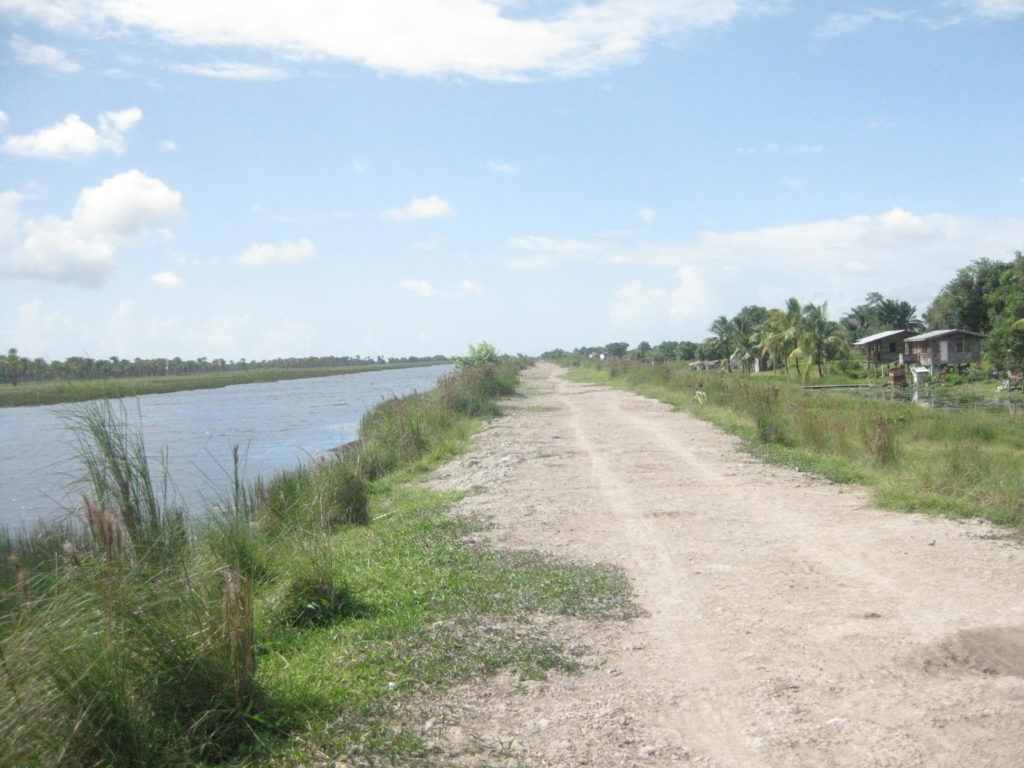
I was moving to Guyana for a 2-year assignment as a Peace Corps Volunteer in the Education sector.
I’m going to tell you straight away; I didn’t survive the whole two-years.
I lasted just over one year, though the decision to leave early is one I’ve questioned frequently since.
For anyone who doesn’t know what the Peace Corps is, it’s a program run by the U.S. Department of State that sends Americans all over the world to volunteer in local communities.
The volunteers live in and integrate into the community they are assigned.
This placed me in a rural farming community teaching literacy in a one-room schoolhouse.
I lucked out and ended up in an amazing community.
Even if, as the only white person around, I was frequently called ‘white-girl’ or ‘white-meat’.
Unfortunately, my work situation wasn’t good.
Due to this and factors involving PC staff I left before my two years were up.
Would I do it again? Probably.
I would keep my head down, not discuss with staff any issues I was having, and not ask for their help.
I would instead rely more heavily on other volunteers.
It was an experience I won’t forget.
I met amazing people and my landlord had me set his sugar cane field on fire!
Don’t worry – this is how the sugar is harvested.
And there was the time a tarantula landed on my head while I was in the shower.
Picture this: you’re in the shower, minding your own business.
No clothes on, you’re in the shower, why would you?
Add into this that you’re in Guyana in a house that pretty much leaks critters.
You stopped going to the bathroom during the night weeks ago after a snake came out of the wall while you were in the bathroom.
You finish showering, have a towel on your head, but that’s it, and you’re about to step out of the shower.
The towel on your head starts to slip and you reach up to fix it.
Wait! What did I just touch!?!?! You feel something that isn’t a towel.
Whatever you just touched moves. As fast as you can you whip that towel off your head and throw it to the ground.
You have to run into the kitchen for a weapon. What can you use?
Your eyes land on your rolling pin. Yes, that will do.
You take the rolling pin and head back into the bathroom.
The tarantula has the gall to still be chilling on your towel.
You take the rolling pin and bring it down… I’ll save you the gory details.
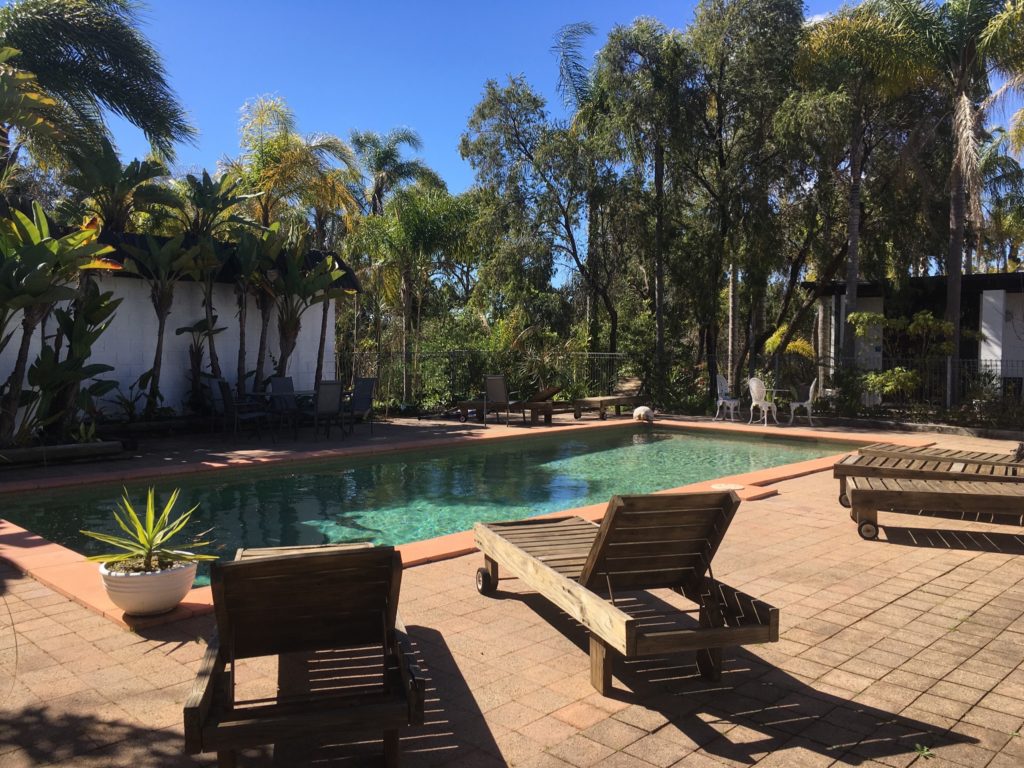
#3 Yoga Volunteering Through HelpXnet
Camille from Everything Yoga Retreat
Back in 2016, I volunteered at Swami’s yoga retreat, one of the most beautiful retreats in Australia.
Located in New South Wales, not far from Sydney, this yoga retreat center works almost exclusively with the help of volunteers.
It is the perfect place to meet travelers from all over the world, and learn to do yoga!
I found this retreat on the popular website Helpxnet.
At the retreat, volunteers help prepare meals, clean guest rooms and participate in retreat activities.
When you are not helping, you can join the yoga and meditation classes, but also the extra activities organized for guests.
I loved this retreat because it felt like being part of a community, and I met so many beautiful people.
There were about 15 other Helpxnet helpers when I was there.
We shared past travel experiences, but more than that, we shared a unique experience together.
I learned a lot about myself at this place. After two weeks at the retreat, I had to go but I wish I could have stayed longer.
This was one of the best and most inspiring travel experiences of my life, and I would do it again in a heartbeat.
Besides volunteering, my favorite way to find free accommodation is through TrustedHousesitters.
Stay in wonderful places for free by house sitting & caring for cute pets.
You can find unique & amazing accommodation that would normally be hundreds per night!
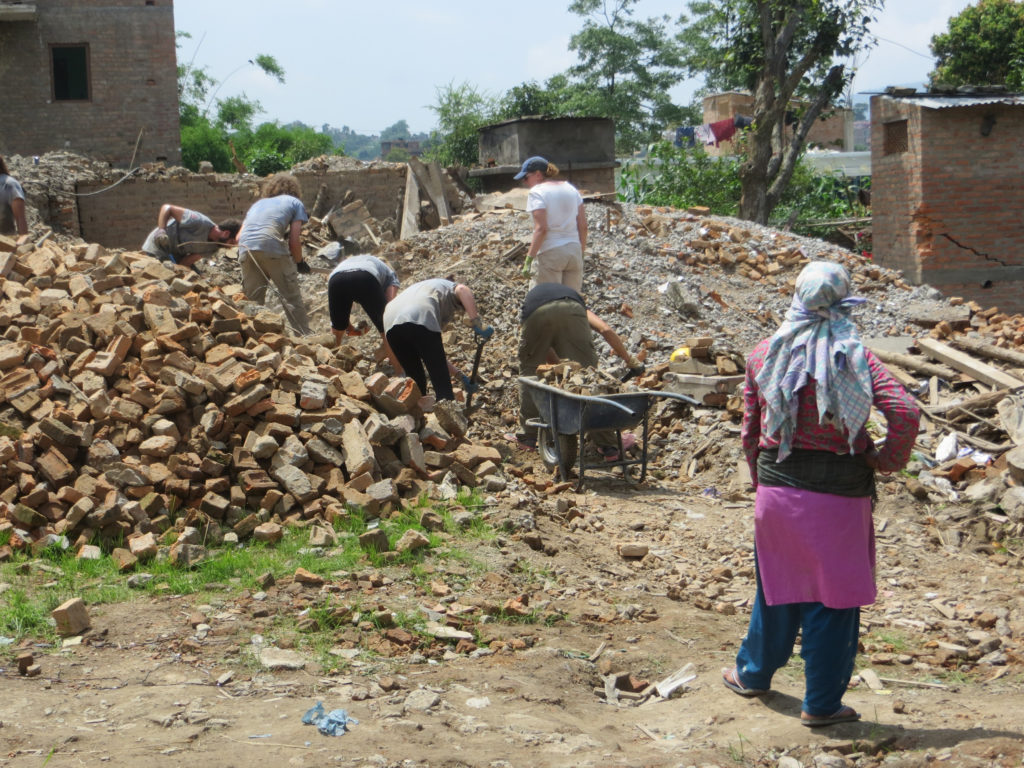
#4 Visiting & Volunteering In Nepal
Ellis from Backpack Adventures & @ellis.veen on Instagram
Nepal is one of my favorite countries and I had visited the country several times since 2006.
My first travel experience was as a volunteer, teaching English at a primary school in Kathmandu.
Back then I didn’t think I managed to do much in the 3 months I was there, but when I returned the next year and the year after I noticed the impact.
I was one of the first to teach English at this specific school and when I left other volunteers took over.
The teachers and children were shy and spoke very little English on my first visit.
Disaster relief is not an easy job. Amid the chaos, when the first survival needs are barely met, it is difficult to know what is needed.
But I found all hands volunteers and I liked their direct and simple approach.
They offer practical help such as clearing rubble and building temporary learning centers.
While most Nepali’s were quite active in cleaning up and rebuilding their homes, for some this was a more difficult task.
Elderly people, widowed women and single mothers had less support and were therefore the primary focus of All Hands volunteers.
It was a great travel experience and I was glad I could do something back for Nepal, even if it was just for one month.
However, after a year when I came back just to see how things were doing their English had improved greatly.
The kids were curious and bombarded me with questions.
It was great to see that in the long run small things did make a difference.
Still, I felt that I could help Nepal best as a tourist spending my money on the local economy.
So I came back many times exploring every corner of the country for more travel experiences.
Then in 2015 the earthquake happened. The country where I have so many beautiful memories is now suffering.
Meanwhile, I was far away in my home and there was nothing I could do.
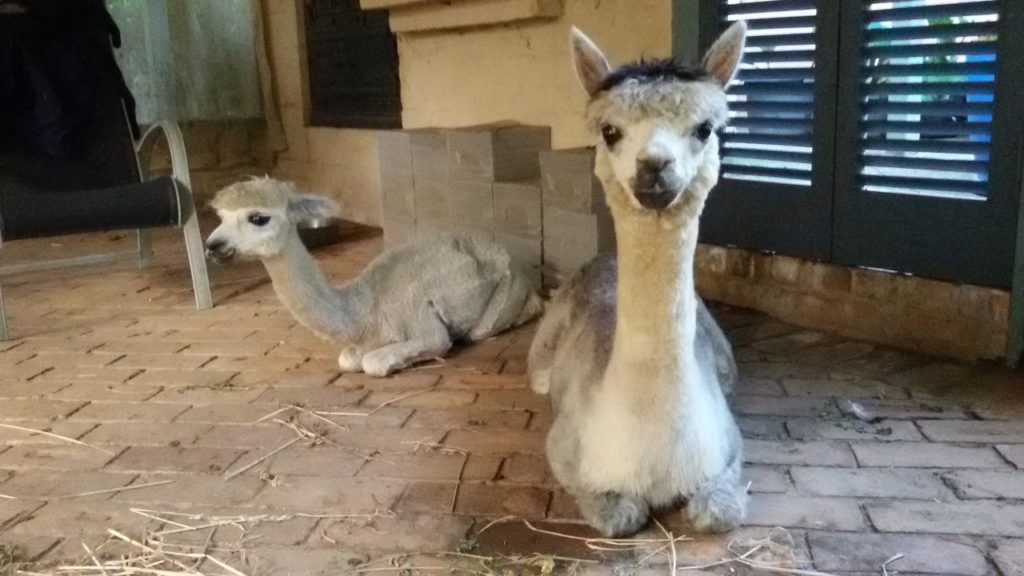
#5 Australia Alpaca Volunteering Adventure
Pauline from BeeLoved City
This is how I ended up at the back of a van, carrying alpacas in Australia Outback!
During our working holiday year in Australia, many things happened!
But if there is one that always makes me smile, it’s this one.
We were volunteering at a mini-donkey farm at the time.
This farm wasn’t a business but a passion project.
The couple running it loved animals and all their animals were much-loved pets.
We would look after the mini-donkeys, poneys, peacocks, chickens…
They even had a pet deer and rescue dingo!
A couple of days before leaving, my friend revealed what turned out to be crucial information.
She told the couple how much she loved Alpacas.
The thing we didn’t know at the time was that they had bought 2 of them and were planning on picking them up in a week.
But that changed everything, so next thing we know, we are at the back of a campervan, driving 60 km to go to an Alpaca farm to pick them up!
Although I grew up on a farm myself, I must say the moment the farmer put a baby alpaca in my arms.
(PS: a baby Alpaca is already almost as tall as an adult human) was truly unique and quite unexpected.
The 60 km drive back home with alpacas on our laps was both hilarious and stressful.
Their neck is very fragile and needless to say that we were determined to make these alpacas get home alive.
We spent our last day setting up their new home, making them comfy beds with straw…
It was such a cute travel experience and completely unexpected and somewhat surreal!
Read More: Is Workaway For Retirees? 13 Of The Most Important Reasons
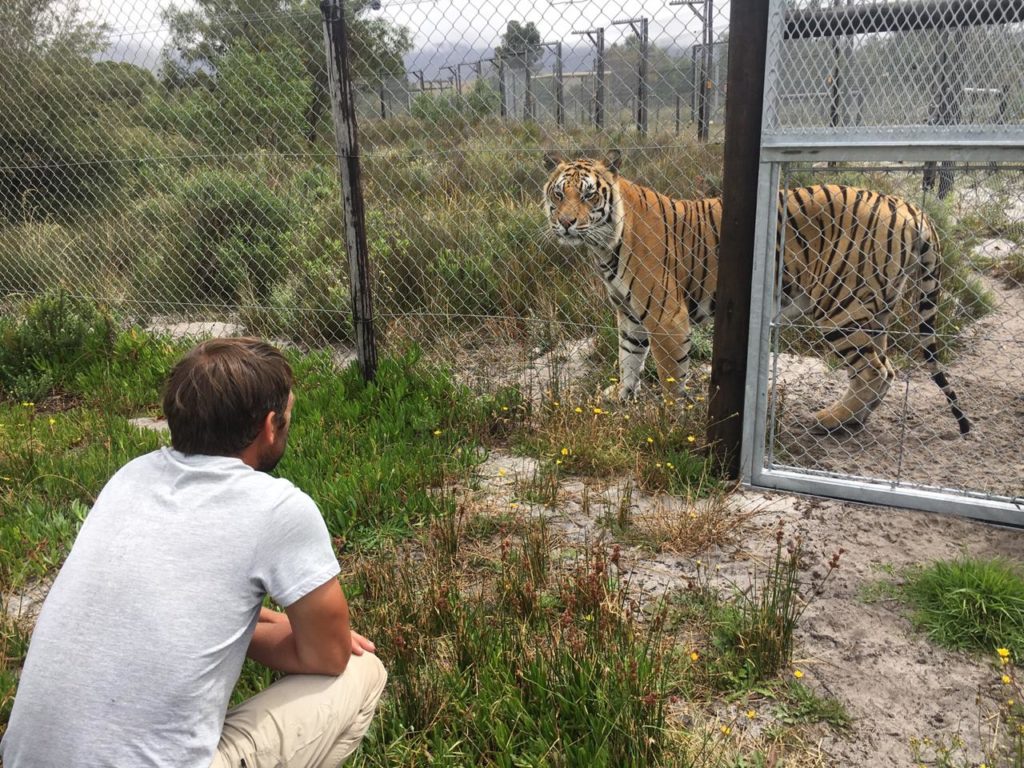
#6 Volunteering At A Big Cat Sanctuary In South Africa
Stuart Fahy from Just Travelling Through
Whilst traveling through South Africa I saw a poster advertising the chance to volunteer at a big cat sanctuary.
Volunteering travel experiences wasn’t originally part of my plans.
However, I’ve always loved animals, especially big cats, so it was an opportunity I couldn’t resist.
I contacted the sanctuary and worked out how to add it to the end of my trip.
Panthera Africa is based two hours from Cape Town and 30km from the town of Hermanus.
I was met at Cape Town airport along with three other volunteers and driven to the site where we were given a tour of the facility and our first introduction to the animals.
I wasn’t sure what to expect and given that the other volunteers had all done it before I was a little nervous.
However, when we were introduced to the first of the big cats I found myself sat barely a meter away from Peema, one of the cheetahs, as she lay against the fence purring loudly.
I had no idea they even did that!
Over the next two weeks I got to know most of the animals, their unique characters and their heartbreaking stories.
It became a regular thing to call the cats by name as I passed by on my way to complete my daily tasks.
Saying good morning to Neptune, king of the Panthera pride, and receiving a nod of acknowledgment in reply (or maybe I just imagined that).
‘Walks’ with Max the caracal as I strolled around the outside of his enclosure and he followed me from the inside.
Being ‘chuffed’ at by Rays the tiger or chuffing to him and receiving a response.
I was also once stalked by Rays as I sat talking to Bella, Panthera’s other tiger, and looked up to see a face peering at me from the bushes.
I ignored it until Rays leaped towards me a few moments later.
Fortunately, I was the other side of the fence, although I could still feel the heavy thump as he landed a few meters away.
I’m pretty sure he found it funny too.
Best of all was standing in the middle of the site at sunset as all the lions began to roar.
You could feel the power as they competed with one another, Neptune invariably being the loudest and longest.
These became some of the most memorable experiences from my three months in southern Africa.
Whilst there I learned a lot about the plight of big cats in Africa and the problems with many sites that claim to be sanctuaries and are anything but.
Fortunately, Panthera Africa is not one of those and has the wellbeing of all the animals in their best interests.
I spent an amazing two weeks at Panthera and plan to go back sometime.
The only issue is it’s a little on the expensive side, although all the money does go towards taking care of the animals (as well as feeding the volunteers).
#7 Wwoofing In Costa Rica
Claudia Tavani from My Adventures Across The World & @myadventuresacrosstheworld on Instagram
A lot of backpackers, as well as long and short term travelers, use travel volunteering as a way to enrich their travel experiences, and even to support their travels.
Most do so with the idea of saving on accommodation or food: they offer their skills with the hopes of helping a good cause and in exchange for a bed and dinner.
This kind of arrangement wouldn’t be bad, to begin with.
The issue, however, is that most people end up surrendering their time, skills and efforts to businesses whose only intention is to save money.
The businesses should be hiring (and paying) from the local community, rather than hire “volunteers” suggesting that this way they can gain “work experience.”
Because frankly, they won’t.
I tried WWOOFing several times, the last one in Costa Rica, and every time it left me with a sour taste in my mouth to the point that I now advocate against it.
This is how things went.
By Central America standards Costa Rica is a very expensive country.
I was traveling long term and thought I may make the most of the country if I settled for a while, worked and saved.
I had a passion for animals and lots of experience with shelters in Italy, where I am from, so I naturally looked for a place with lots of animals that I could help.
That’s how I ended up on a farm that – on paper – did a great job at rescuing strays from the streets of Costa Rica.
I was hired to take care of the animals.
It didn’t take me long to realize that this was no animal shelter.
It was a farm, owned by an ex-pat who never integrated into the local society and who was trying to resume her business project (a small café) without investing a dime in it.
It was immediately clear that my duties would go beyond those of caring for animals.
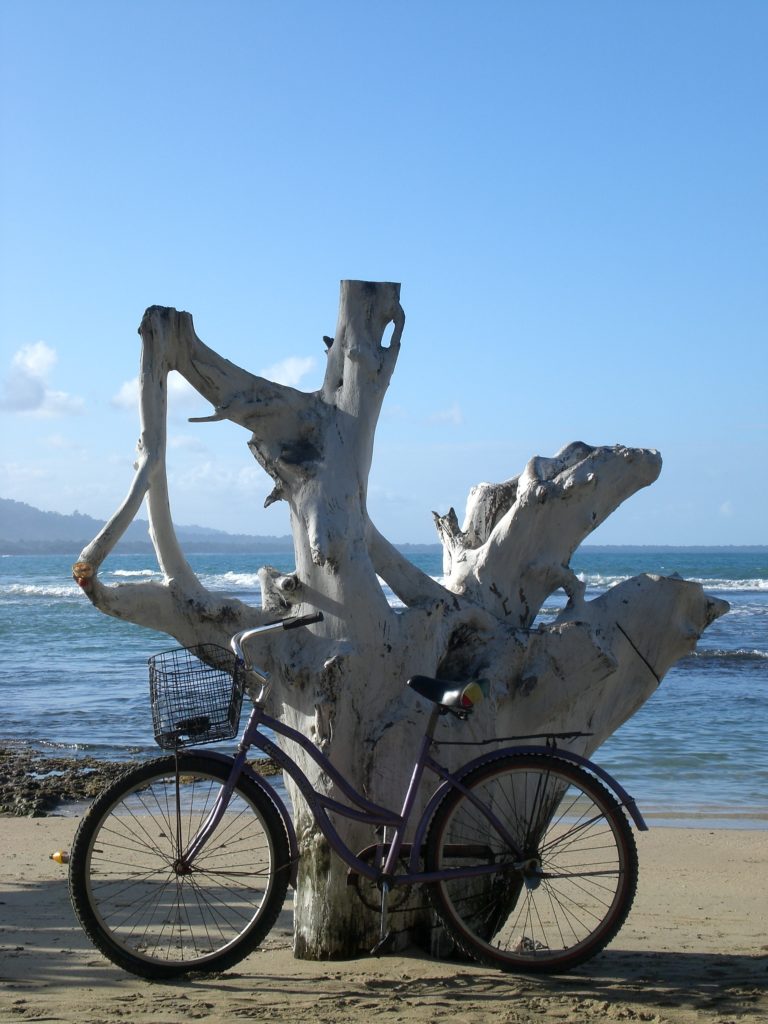
I was put to scrub a filthy professional kitchen that was infested by cockroaches, which the owner refused to sanitize because of them being not unsanitary.
I was doing this in exchange for a bed and 3 daily meals.
The meals turned out to be little more than fruit and – at best – some raw vegetables and rice.
I was starving. When I pointed this out, I was told to eat more fruit.
But I was lacking basic nutrients.
I was suggested to bake bread, but it would take me weeks of cleaning the filthy kitchen before I’d be able to do so.
There was no way I could use that rotten oven, that disgusting fridge, that countertop where cockroaches regularly had a party.
A week later, I packed my belongings and left.
The lesson I have learned is clear.
If you want to volunteer, the focus should not be on you and on what you can save; but on the cause, you are aiming to help.
And there has to be a cause. A cause can’t be a business. If someone is making profits, that is a business.
Volunteering should only be done for a reputable charity or NGO that has a well set up program.
If you surrender your time and skills for the sake of saving $10 a day, you are only damaging the local economy as you are stealing a paid job from a man or woman who may be able to feed a family with that money.
You can only call it volunteering when you are devoting your time and skills to a humanitarian cause to empower the local community.
Things such as receptionist work in a hostel, a bartending job at a backpackers’ hangout, etc are not volunteering: it is slave labor.
And if you decide to do it, the only one who benefits from it is the owner of the business.
Love This Post? Pin It For Later!
